Sour Milk, Bitter Herbs, and a Word Containing Grief
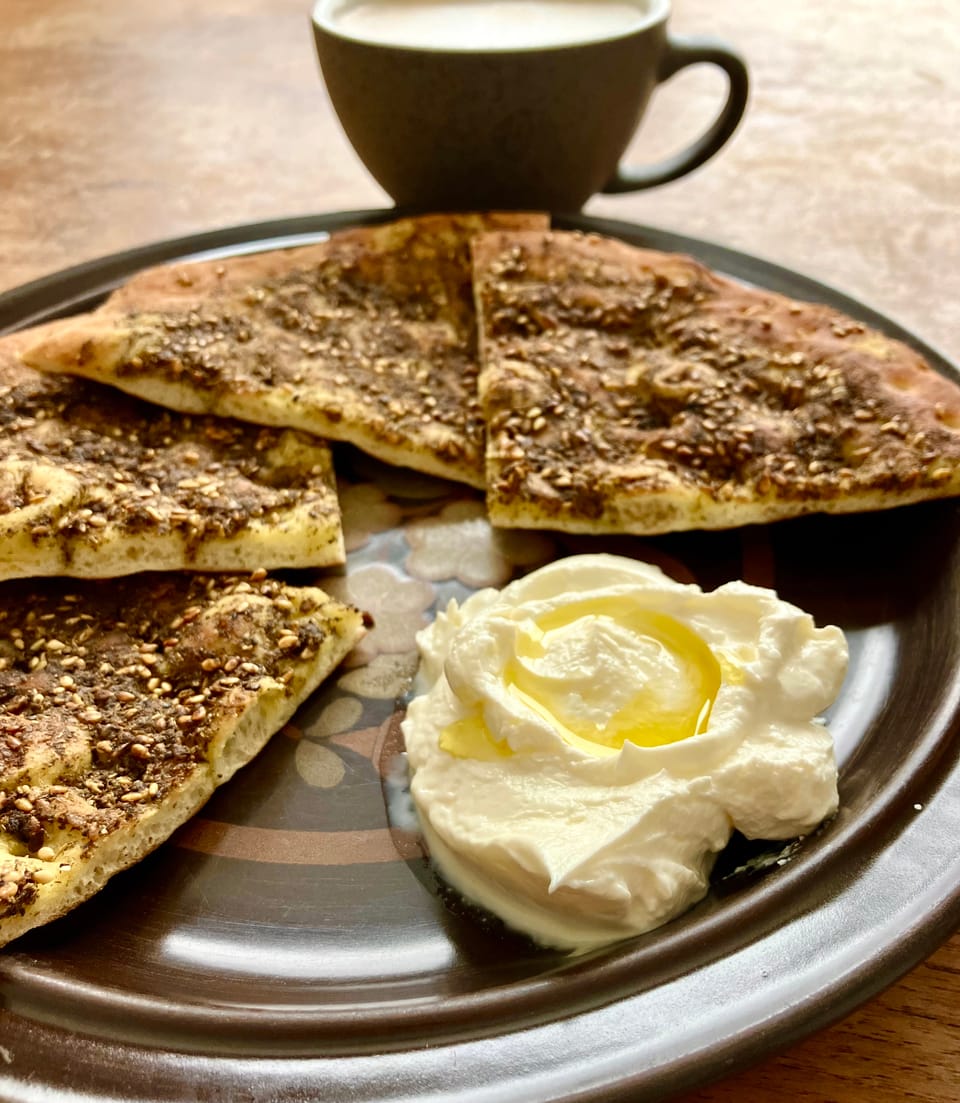
If you're in Canada, this informational google doc is updated almost daily with information, scripts, and direct actions you can take to pressure our government into withdrawing its support for Palestinian genocide. If you're in the US, Jewish Voice for Peace has many tools for coordinating action. I hope that wherever you are in the world you're finding ways to work for the liberation of all people.
Dear Friends,
I'm sick and bearing up under it as best I can. So in brief, here are some things that I wrote or saw published in December.
First, I was very honoured to be invited by Sarah Gailey to contribute to their Personal Canons Cookbook. I dithered for months over what Meaningful Dish I wanted to share—ful mdammas, mjaddara, aadas bi hamoud—before deciding, in something of a fugue state, on labaneh and zaatar.
The result is an essay titled Sour Milk and Bitter Herbs, which I hope you'll read. Here's an excerpt:
There are foods I don’t associate with a specific memory so much as with the act of remembering. If all my favourite breakfast foods were laid out before me—smoked salmon and capers, ful mdammas, soft goat cheese and honey—I would reach for labaneh and zaatar first. As ubiquitous to the Lebanese breakfast table as buttered bread is to others, labaneh and zaatar are extraordinary in their simplicity, a constant, evergreen staple. When I feed friends a morsel of labaneh and zaatar on whole wheat pita, I’m not offering them a relic of my childhood so much as an invitation into the fullness of my family—a piece of who I am, and who I’ve been, when I’m at home: a daughter, a sister, an aunt.
Second: I wrote a poem for Bisan Owda, a 25 year old journalist in Gaza whose updates I've been following. In this video from November 29 she tries to translate the word "Qahr" into English and gets frustrated with the attempt. It hit me deeper than most of her updates because the very specific grief she describes—seeing records and archives obliterated by an enemy who wants to erase you from the world—speaks to the work of my life, as does the reaching and searching for how to translate and be understood.
Anyway here it is.
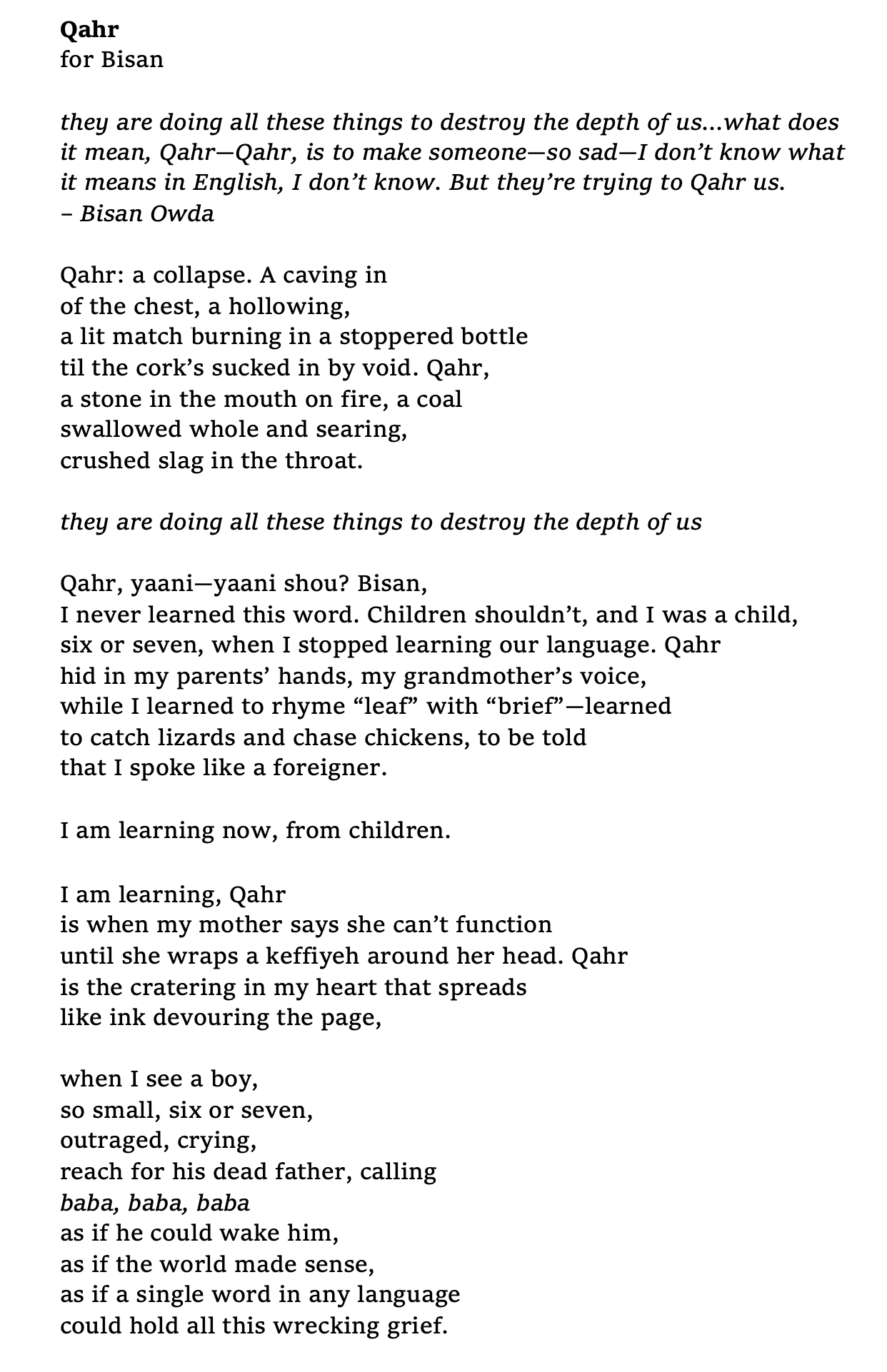
As it happens, one of my father's love languages is translation, so here is his translation of it into Arabic.
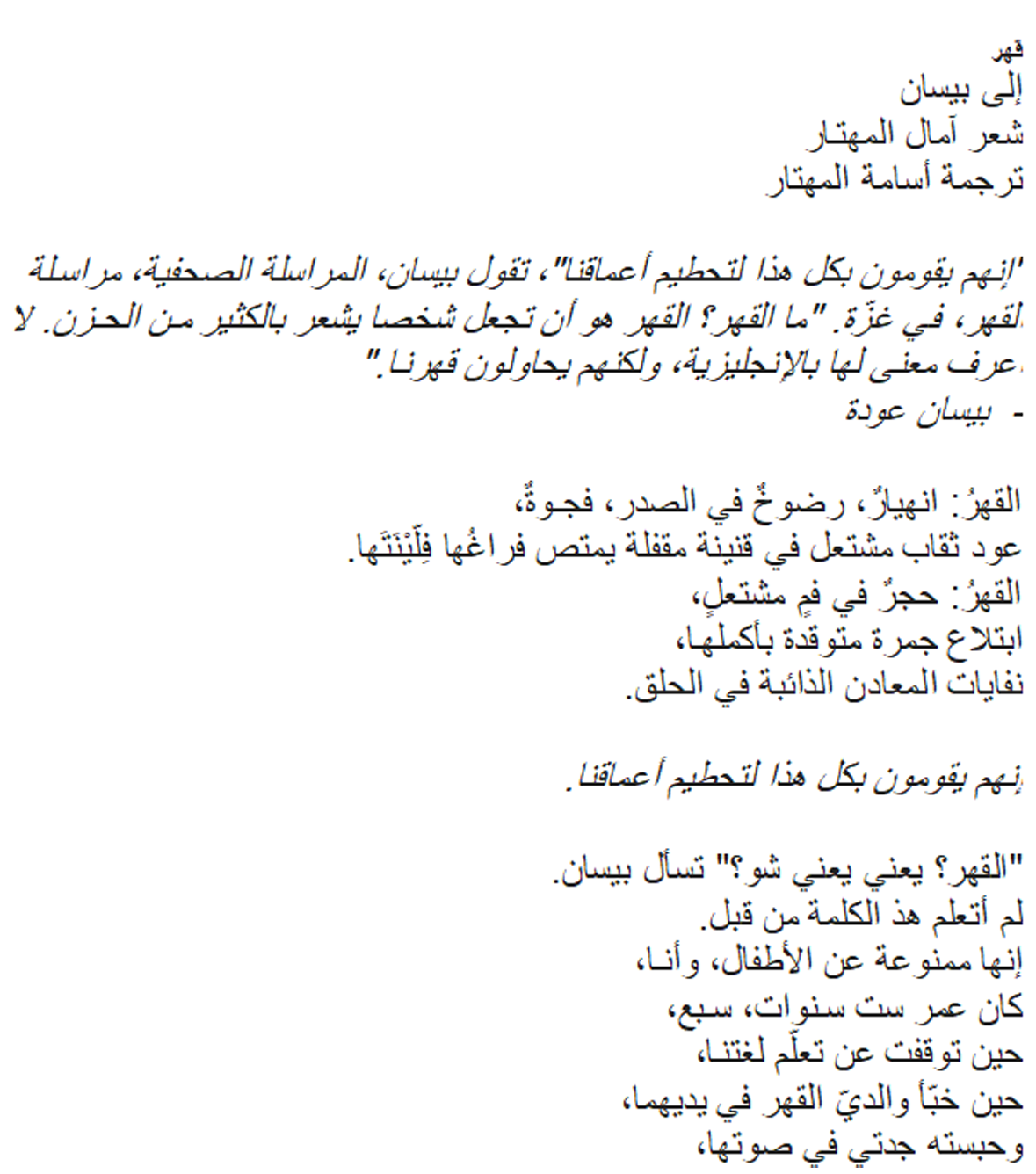
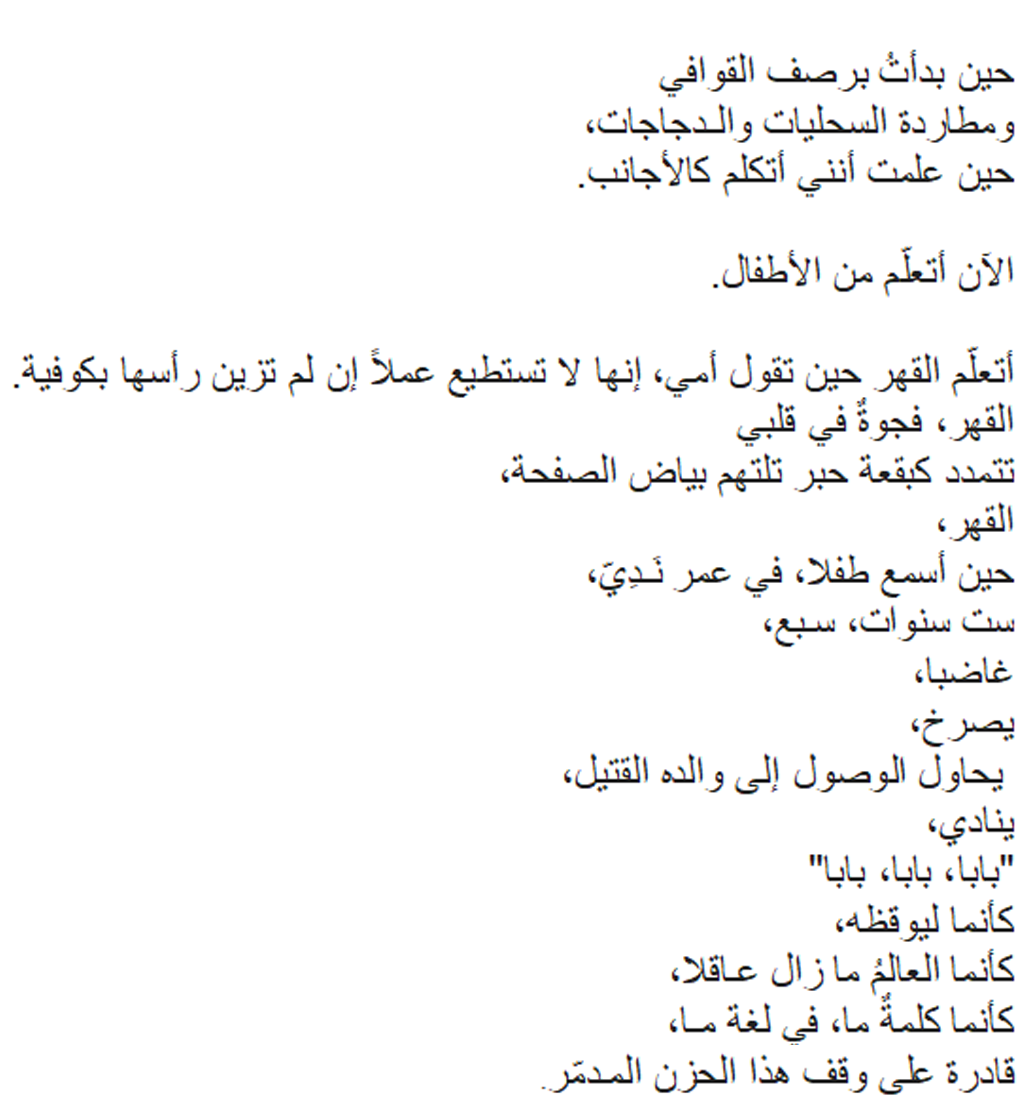
Third: my Top Ten Books of the Year went up at the New York Times Book Review. That there's a gift link. I hope you find something there to enjoy.
There are six days left before I venture out in search of my New Year's Bird, and I might wait until then to look back on the wildness of this year and give it a proper accounting. Presently all I want to do is rest in ways that relax even the creases of my eyelids. But either way, before 2024 dawns on us I wanted to wish you a gentle, easing, restorative liminality, and hope that whatever rest you grant yourself in this handful of days and nights supports you tenfold as we move out of them together.
Love,
Amal
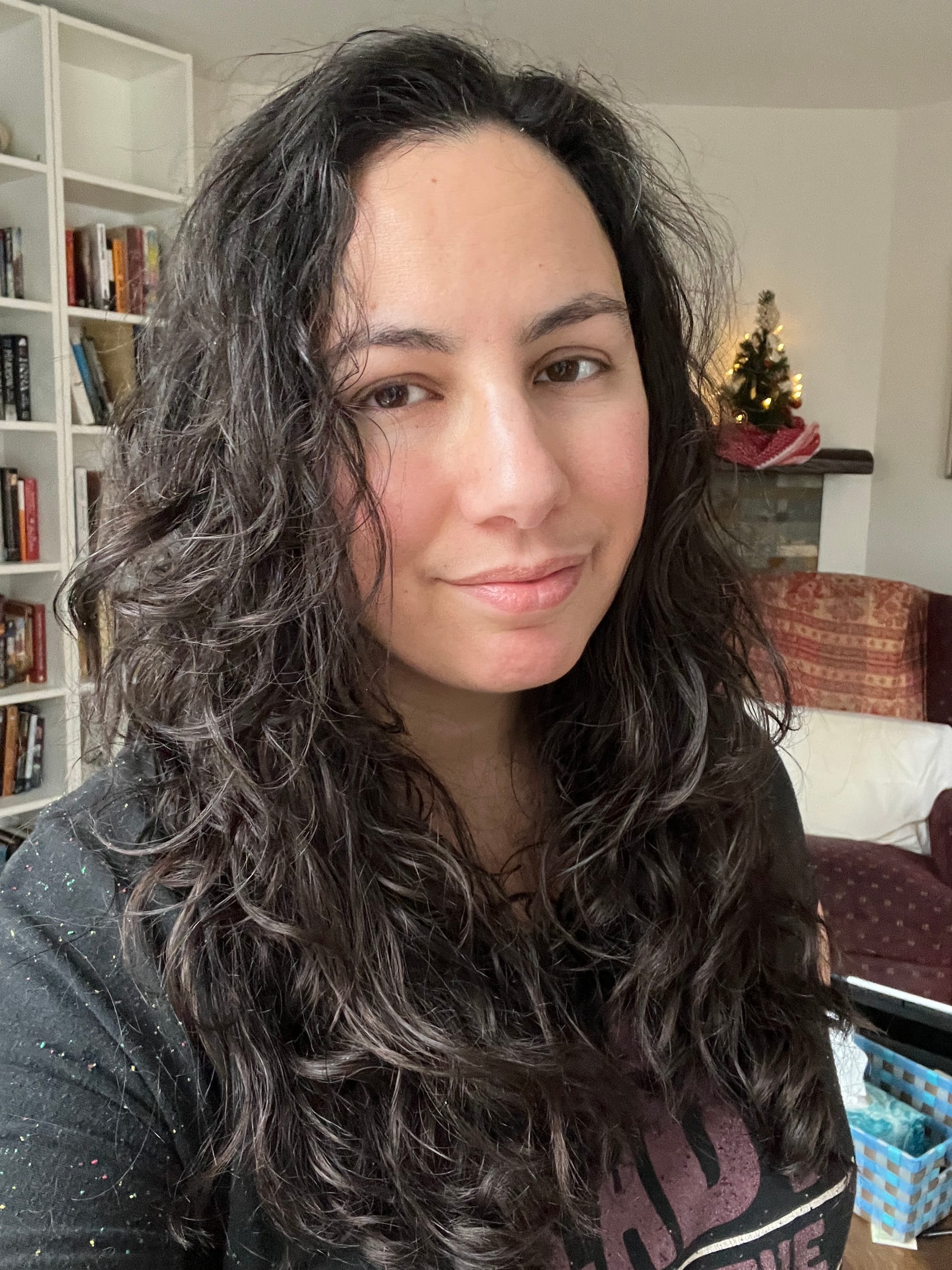
Postscripts:
- The hardcover edition of The Book of Witches, edited by Jonathan Strahan and containing my novelette "John Hollowback and the Witch," is 40% off on Books-a-Million until January 31! That's pretty wild for a beautiful hardcover anthology, and I hope you get to take advantage of the sale.
- Applications for the Wayward Retreat close on December 31! If you think you would benefit from it you should apply! I wholeheartedly recommend it as something that moved, nourished and transformed me. Make sure you read the FAQ and Code of Conduct first!
- I'd like to make people aware of Israelism, a documentary that's available to stream for $5 until January 1. I haven't watched it myself yet, but it's been highly recommended to me, and I would really love to watch it in the virtual vicinity of Jewish friends from different backgrounds and nationalities to discuss it. "When two young American Jews raised to unconditionally love Israel witness the brutal way Israel treats Palestinians, their lives take sharp left turns. They join a movement of young American Jews battling the old guard to redefine Judaism’s relationship with Israel, revealing a deepening generational divide over modern Jewish identity."
Member discussion